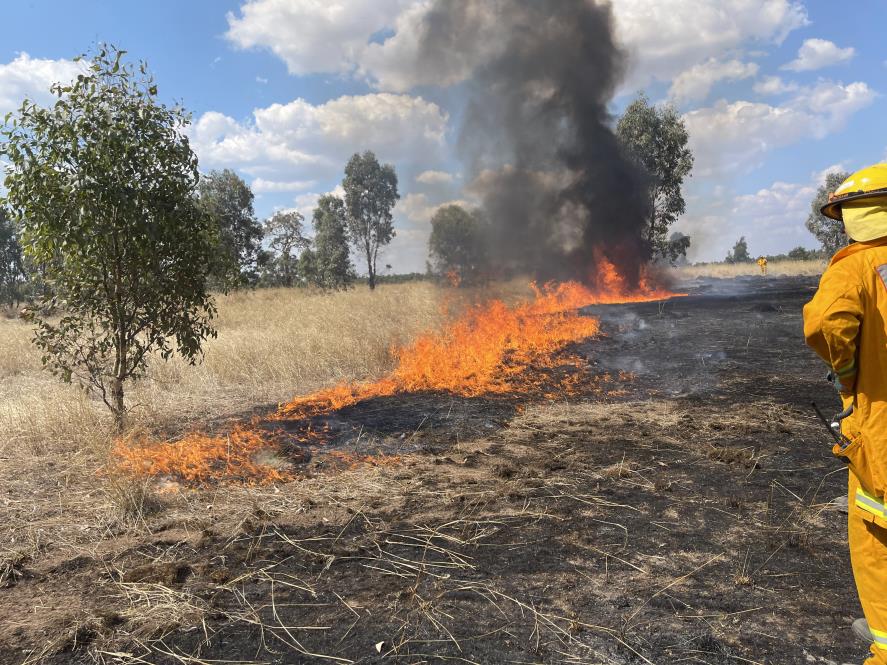 Little Desert Burn Camp
Little Desert Burn Camp
Burn camps have been an important part of CFA for a number of years, delivering crucial training opportunities for volunteers throughout the state.
An idea in 2011 to develop an exercise where participants could build knowledge, skills, and confidence in a controlled and safe planned burning environment, led to the first burn training camp in Brucknell in 2012. The success of this initiative paved the way for further camps based at Cape Otway, Mallacoota, Adekate, Cann River, Crib Point and Shelley.
Shelley Burn Camp
Vegetation Management Officers (VMO) Phil Browne and Phil Hawkey launched North East Region’s Shelley burn camp in 2014, and more than 280 CFA members have attended over the years.
Held in HVP’s Shelley Plantation, small-scale burns are carried out on tracts of native vegetation within the estate. Participants operate in teams for the duration of the camp and are assigned different tasks each day.
This allows them to gain experience in all aspects of planned burning including:
• fuel moisture readings
• overall fuel hazard assessments
• establishing and marking points of reference
• identification and protection of environmental values and critical infrastructure
• developing a burn plan
• weather monitoring.
In the burn phase, teams develop appropriate lighting patterns for each site and everyone is involved in the various burn operation tasks. If weather is unfavourable, a suite of supplemental activities and topics have been designed to support the lessons
learned from the camp and each day participants attend a debriefing to reinforce what was learned.
Unfortunately, because of the 2019-20 fires and COVID-19, burn camps were suspended in North-East Region in April 2019.
Little Desert Burn Camp
Over three days in March 2021, West Region VMO Ian Morrison led a team of CFA members to complete five small burns in heathlands and grasslands in the Little Desert (pictured). This needed extensive planning and collaboration with Little Desert Nature Lodge, Bank Australia and Greening Australia.
A major positive outcome of this burn camp was that several members gained the necessary skills for the Suppress Wildfire module and two participants successfully completed the national standard of Burn Controller.
Ian is continuously looking for new ways to evolve and improve the camps with an aim to incorporate the use of portable automatic weather stations (PAWS) and drones to support the documentation of planned burns.
Training instructors will continue to be an integral part of assessing skills and the burn controller endorsement process. Ian also invites guest speakers to pass on their experience and to inspire participants so that they leave the burn camp with excellent knowledge of all aspects of planned burning.
Cape Clear Burn Day and Women’s Mentoring Day
The annual Cape Clear Women’s Burn Day in District 15, an initiative of Cape Clear Fire Brigade, encourages women to get involved with planned burning in a safe, positive and relaxed environment.
Now in its fourth year, interest in the event has continued to grow and many participants travel long distances to attend. It started as a one-day event, but is now an informal and fun weekend of skills maintenance and, weather permitting, roadside burning.
April 2021 also marked the first Women’s Mentoring Day held in District 4, where all female firefighters in the South West Region were invited to participate in a planned burn to experience live fire. The day was a success and generated a lot of interest from
volunteers. Planning is underway to make the next sessions bigger and better.
| Submitted by |
News and Media |